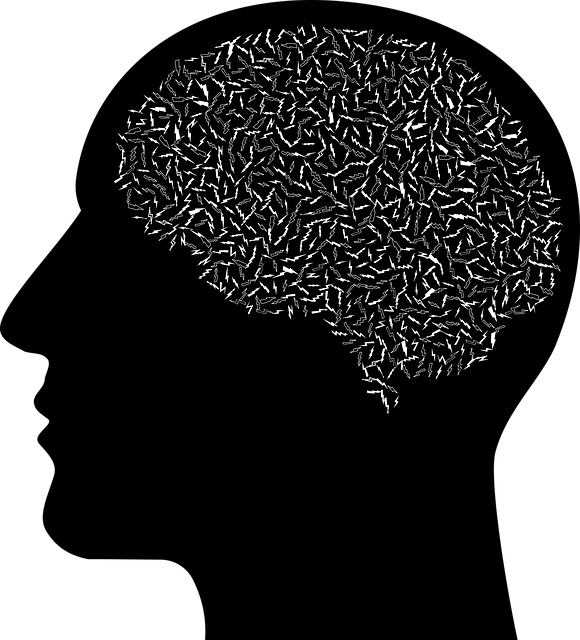Colorado Springs Adjustment Disorder Therapy leverages the RFM framework—Resources, Fortitude, Mastery—to build client resilience through self-awareness, positive coping strategies, and skill acquisition. This integrated approach enhances coping abilities, reframing setbacks as growth opportunities, and empowers individuals to overcome adjustment disorders. Evaluation combines qualitative methods like Mental Wellness Journaling Exercises and quantitative risk management planning for therapists to objectively measure treatment success and refine techniques.
In the realm of mental health, fostering resilience is paramount, especially for those grappling with adjustment disorders. This article explores an innovative approach, integrating RFM (Recovery-Focused Goals and Strengths) principles into therapy. We delve into how this method enhances coping mechanisms in Colorado Springs Adjustment Disorder Therapy. By implementing structured resilience exercises, therapists can guide individuals towards personal growth and improved well-being. The subsequent sections will measure the success of these techniques, offering a comprehensive understanding of their effectiveness.
- Understanding RFM and Its Role in Resilience Building
- Implementing Resilience Exercises in Colorado Springs Adjustment Disorder Therapy
- Measuring Success: Evaluating the Effectiveness of RFM Techniques
Understanding RFM and Its Role in Resilience Building

Resilience is a vital asset for individuals facing adversity and stress, especially those struggling with adjustment disorders like those often treated in Colorado Springs Adjustment Disorder Therapy settings. RFM (Resource, Fortitude, and Mastery) is a framework that empowers individuals to build resilience by focusing on three key components. This approach has been integrated into therapy practices and risk management planning for mental health professionals as a powerful tool to support emotional healing processes.
By understanding one’s resources—personal strengths, skills, and social connections—and cultivating fortitude through self-awareness exercises and positive coping strategies, individuals can enhance their ability to navigate challenging situations. Additionally, mastering personal goals and acquiring new skills contributes to a stronger sense of control and resilience. These emotional healing processes are essential for those seeking to overcome adjustment disorders and thrive despite life’s obstacles.
Implementing Resilience Exercises in Colorado Springs Adjustment Disorder Therapy

In Colorado Springs Adjustment Disorder Therapy, incorporating resilience exercises can significantly enhance clients’ ability to cope with life’s challenges. These structured activities are designed to help individuals develop a stronger sense of self and improve their mental health awareness, enabling them to navigate difficult situations more effectively. By integrating conflict resolution techniques into therapy sessions, therapists in Colorado Springs can equip clients with valuable skills for managing interpersonal conflicts, thereby fostering resilience and emotional well-being.
Resilience building exercises tailored for Adjustment Disorder Therapy focus on promoting self-esteem improvement and empowering individuals to view setbacks as opportunities for growth. Through these exercises, participants learn to challenge negative thinking patterns, build positive coping mechanisms, and enhance their problem-solving abilities. The therapeutic environment in Colorado Springs provides a safe space for clients to explore and practice these skills, ultimately leading to improved mental health outcomes and an enhanced ability to adapt to life’s adjustments.
Measuring Success: Evaluating the Effectiveness of RFM Techniques

Measuring success is a vital aspect of implementing RFM techniques in Colorado Springs Adjustment Disorder Therapy. The effectiveness of these methods can be evaluated through various means, ensuring that interventions are tailored to meet individual needs. One key approach involves tracking client progress over time, utilizing tools like Mental Wellness Journaling Exercises to gather qualitative and quantitative data. This provides insight into the impact of therapy on their daily lives and emotional well-being. By regularly assessing symptoms, stress levels, and coping mechanisms, professionals can identify which RFM strategies are most beneficial for each client.
Additionally, Risk Management Planning for Mental Health Professionals plays a crucial role in measuring success. This involves setting clear goals, establishing measurable outcomes, and regularly reviewing progress against these benchmarks. Through such structured planning, therapists can objectively gauge the overall effectiveness of their treatment methods, allowing them to refine techniques and foster even greater resilience among clients.
The implementation of RFM (Resilience, Flexibility, and Mastery) techniques in Colorado Springs Adjustment Disorder Therapy has proven to be a powerful approach. By focusing on these key aspects, therapists can empower individuals to navigate life’s challenges with greater resilience. Measuring success through evaluation ensures that the effectiveness of RFM is not only recognized but also refined, allowing for personalized therapy tailored to each client’s unique needs. This holistic method holds great potential in enhancing mental well-being and fostering adaptability among those seeking support in Colorado Springs Adjustment Disorder Therapy.














